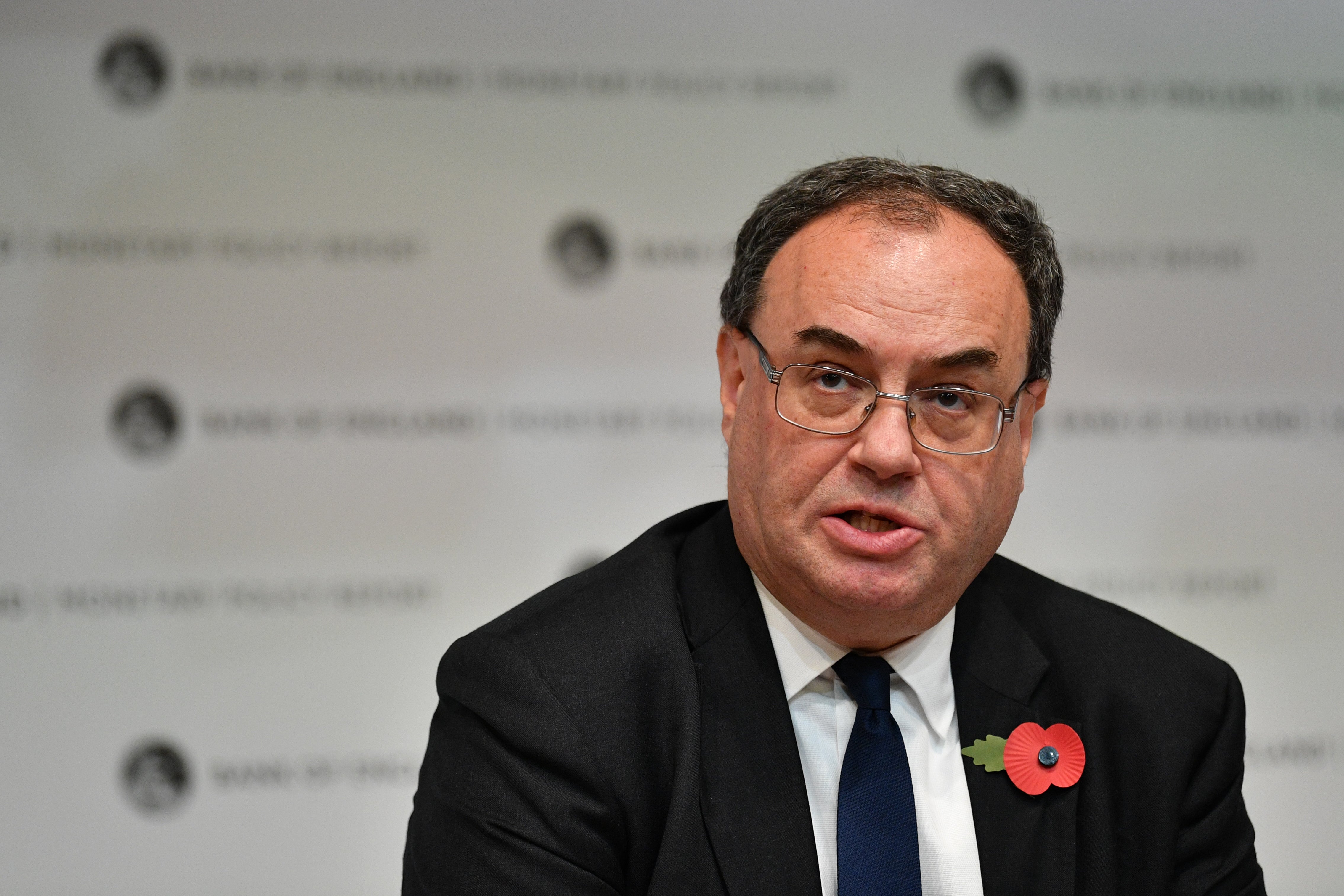‘No 70s-style inflation spiral’ says Bank of England chief — because households have less to spend
Soaring cost of essentials like energy and food means businesses will struggle to put up prices of other goods because people will have less disposable income to spend on them, MPs told

Your support helps us to tell the story
From reproductive rights to climate change to Big Tech, The Independent is on the ground when the story is developing. Whether it's investigating the financials of Elon Musk's pro-Trump PAC or producing our latest documentary, 'The A Word', which shines a light on the American women fighting for reproductive rights, we know how important it is to parse out the facts from the messaging.
At such a critical moment in US history, we need reporters on the ground. Your donation allows us to keep sending journalists to speak to both sides of the story.
The Independent is trusted by Americans across the entire political spectrum. And unlike many other quality news outlets, we choose not to lock Americans out of our reporting and analysis with paywalls. We believe quality journalism should be available to everyone, paid for by those who can afford it.
Your support makes all the difference.There will be no return to a ‘1970s-style’ spiral of inflation, because wage increases are being eaten up by the soaring cost of essential goods, senior Bank of England policymakers have said.
Some economists have warned that pay rises caused by labour shortages could result in a "wage-price spiral" where higher salaries push up the price of goods, prompting other workers to demand their own pay hikes.
Three of the Bank's most senior figures told MPs on the Treasury Select Committee that such a scenario - which played out in the late 1970s - was not likely today.
"There is no risk of a wage-price spiral in the UK," said Michael Saunders, an external member of the Bank's nine-person interest rate-setting committee. "Talk of a return to the 70s is completely misplaced."
"The economy has changed in many ways since then and an extra fundamental change is the institutional policy setup with an independent central bank, a clear remit and an effective set of policy tools.
However, he said that he had voted to withdraw some of the Bank's stimulus measures because the labour market was "tight" and average wages were rising.
Mr Saunders was in the minority that voted to tighten monetary policy last week, with the majority opting to keep interest rates at a record low of 0.1 per cent and make no change to the Bank's quantitative easing programme which has seen it pump £900bn of newly created money into financial markets.
Bank of England governor Andrew Bailey said the labour market situation was "very different" no how it was more than four decades ago.
"The collective bargaining position is very different," said Mr Bailey, referring to the sharp fall in the proportion of workers that are members of a trade union.
Asked whether spiralling inflation was likely, Mr Bailey said: "We're a very long way from the 702, put it that way".
Dr Catherine Mann, another member of the Bank's Monetary Policy Committee, told MPs on Monday that businesses may not be able to pass on the rising cost of materials and labour to customers because consumers will not have additional disposable income to spend, despite pay rises in some sectors.
"Will consumers have enough to spend on goods and services when a chunk of their pocket book is being spent on energy and food? The answer is probably not and so going forward the ability of firms to pass through any cost increase one for one into their prices is at question.”
The Bank has faced calls from some analysts to raise interest rates to cool the economy and reduce inflation but has so far resisted. Any move to hike rates would be controversial because the economy is still smaller than it was before the pandemic and the latest data shows that growth has slowed down.
Mr Bailey defended the guidance he gave before the Bank’s most recent interest rate decision. His words had been interpreted as a sign that the Bank was ready to raise rates. Mr Bailey stood by his assertion last month that the Bank would “have to act” if inflation remained persistently above target.
The statement had been “conditional” he said, and was merely a reiteration of the Bank’s public mandate to keep inflation close to the target rate of 2 per cent.
Mr Bailey said the decision to maintain rates was a "very close call" but stressed that he had never said the Bank would raise rates at the meeting,.
"As a point of guidance, in terms of emphasising the primacy of the inflation target and the link to medium-term inflation expectations, I thought it was critical that we put our foot down at that point," he said.
Join our commenting forum
Join thought-provoking conversations, follow other Independent readers and see their replies
Comments